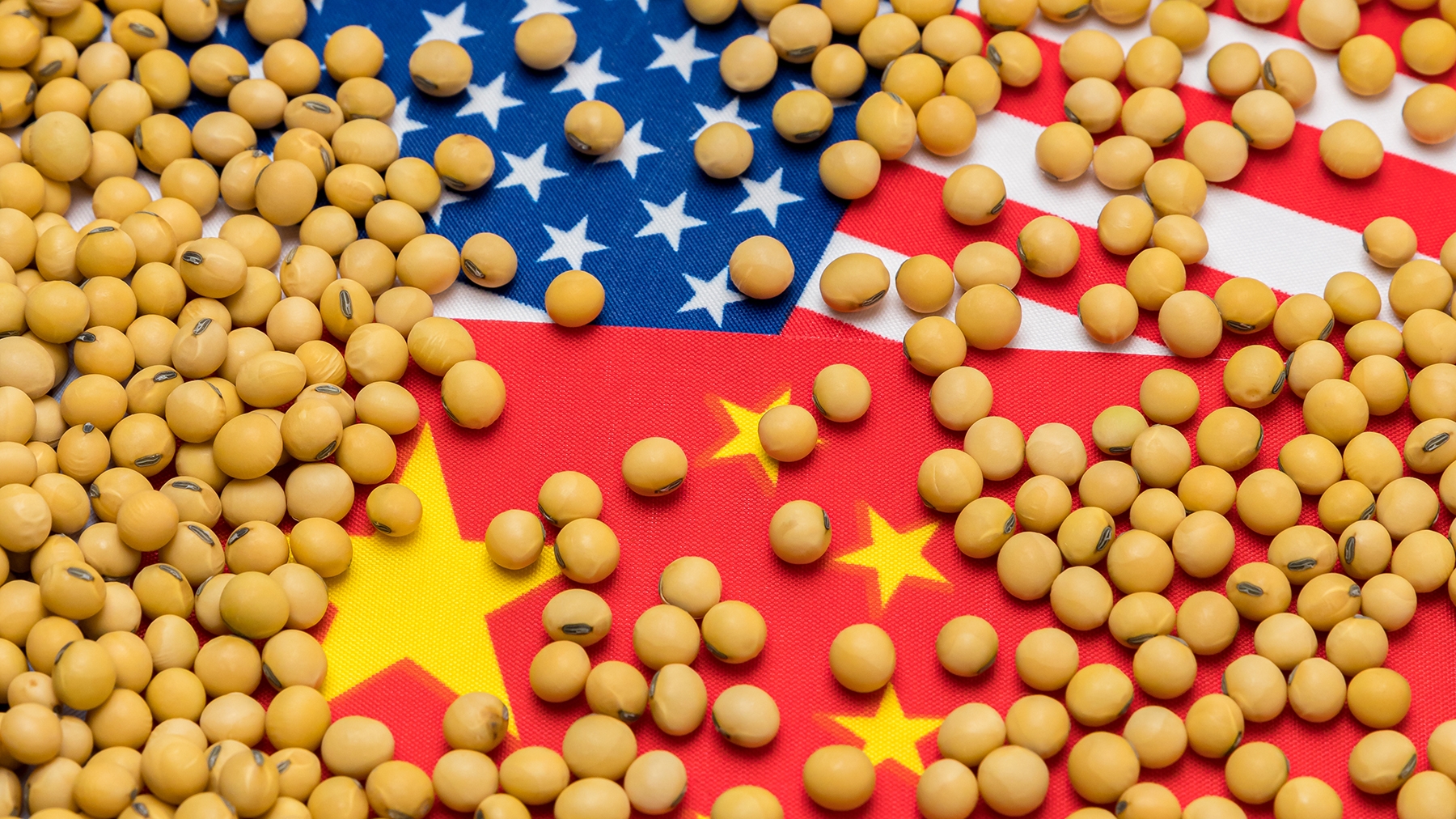US and China agree on trade framework for rare earths, soybeans

US Treasury Secretary Scott Bessent on Sunday signalled that Washington and Beijing had reached a tentative trade framework that would see China delaying export curbs on rare earths and buying more US soybeans. If confirmed, the agreement would avert a threatened 100 percent hike on tariffs on Chinese exports.
US Treasury Secretary Scott Bessent said on Sunday that he anticipates that China will revive substantial purchases of US soybeans for several years and will delay its expanded licensing regime for rare earths by a year and re-examine it.
His statements came after two days of trade talks between US and Chinese officials in Malaysia.
Bessent told the CBS programme “Face the Nation” that the soybean purchases would be substantial. Bessent said on ABC’s “This Week” programme that when President Donald Trump and President Xi Jinping announce a trade deal next Thursday US soybean farmers “will feel very good about what’s going on both for this season and the coming seasons for several years”.
Bessent also said on “Face the Nation” that the details for a deal to transfer ownership of Chinese short video app TikTok to US control were ironed out and that Trump and Xi would be able to finalise the transaction next week.
Bessent and US Trade Representative Jamieson Greer met with Chinese Vice Premier He Lifeng and top trade negotiator Li Chenggang on the sidelines of the ASEAN summit in Kuala Lumpur for a fifth round of in-person discussions since May.
“I think we have a very successful framework for the leaders to discuss on Thursday,” Bessent told reporters.
Bessent told NBC’s “Meet the Press” that he anticipated the agreement would avoid a new 100 percent US tariff on Chinese goods threatened by Trump.
He said Trump and Xi would discuss soybean and agricultural purchases from American farmers, more balanced trade and resolving the US fentanyl crisis, which was the basis of 20 percent US tariffs on Chinese goods.
China’s Li said both sides had reached a “preliminary consensus” and will next go through their respective internal approval processes.
“The US position has been tough,” Li said. “We have experienced very intense consultations and engaged in constructive exchanges in exploring solutions and arrangements to address these concerns.”
Trump arrived in Malaysia on Sunday for a summit of the Association of Southeast Asian Nations (ASEAN), his first stop in a five-day Asia tour that is expected to culminate in a face-to-face meeting with Xi in South Korea on October 30.
After the talks, he struck a positive tone, saying: “I think we’re going to have a deal with China.”
Both sides are looking to avert an escalation of their trade war after Trump threatened new 100 percent tariffs on Chinese goods and other trade curbs starting on November 1, in retaliation for China’s expanded export controls on rare earth magnets and minerals.
Beijing and Washington rolled back most of their triple-digit tariffs on each other’s goods under a trade truce, which is due to expire on November 10.
The US and Chinese officials said they discussed trade expansion, an extension of the truce, fentanyl, US port entrance fees, rare earths, TikTok and more.
Li described the discussions as “candid”, while Bessent said they were “very substantial negotiations”.
Bessent said the truce could be extended, pending the president’s decision, marking a second extension since it was first signed in May.
While the White House has officially announced the highly anticipated Trump-Xi talks, Beijing has yet to confirm that the two leaders will meet.
On the sidelines of the ASEAN Summit, Trump hinted at possible meetings with Xi in China and the United States.
“We’ve agreed to meet. We’re going to meet them later in China, and we’re going to meet in the US, in either Washington or at Mar-a-Lago,” he said.
Among Trump’s talking points with Xi are Chinese purchases of US soybeans, concerns around democratically-governed Taiwan, which Beijing views as its own territory, and the release of jailed Hong Kong media tycoon Jimmy Lai.
The detention of the founder of the now-defunct pro-democracy newspaper Apple Daily has become the most high-profile example of China’s crackdown on rights in Hong Kong.
Trump also said that he would seek China’s help in Washington’s dealings with Russia, as Moscow’s war in Ukraine grinds on.
Tensions between the world’s two largest economies flared in the past few weeks as a delicate trade truce, reached after a first round of trade talks in Geneva in May and extended in August, failed to prevent the two sides from hitting each other with more sanctions, export curbs and threats of stronger retaliatory measures.
The latest round of talks has likely centred around China’s expanded controls of rare earths exports that have caused a global shortage.
That has prompted the Trump administration to consider a block on software-powered exports to China, from laptops to jet engines.
For almost 30 years of expertise in the agri markets, UkrAgroConsult has accumulated an extensive database, which became the basis of the platform AgriSupp.
It is a multi-functional online platform with market intelligence for grains and oilseeds that enables to get access to daily operational information on the Black Sea & Danube markets, analytical reports, historical data.
You are welcome to get a 7-day free demo access!!!
Read also
Oilseeds become key driver of crop farming profitability in Kazakhstan
Abbey Commodities – General Partner of BLACK SEA GRAIN.KYIV-2026
Corn prices in Ukraine dropped to $212–213/t
Export Logistics Reset 2026: Rail Tariffs, Capacity Pressure and New Trade Reality
India’s palm oil imports rose 51% in January, reaching a four-month high
Write to us
Our manager will contact you soon



